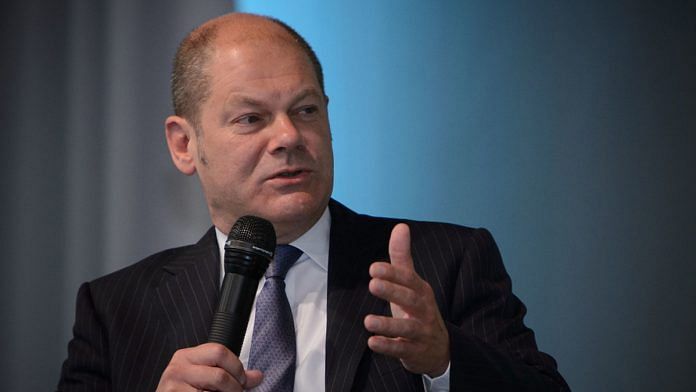New Delhi: Germany’s Finance Minister Olaf Scholz called for deepening the Banking Union of the European Union by introducing a common European deposit insurance mechanism, in an opinion piece for the Financial Times. Scholz’s call is surprising since Germany has been fundamentally against the deposit insurance scheme since 2011 – the first time it was aired.
While Scholz does not seem to have the support of German Chancellor Angela Merkel or the broader political class, it is remarkable that the country’s Finance Minister made such a statement.
The Banking Union issue is a highly contentious one in European Union politics and has raised fundamental questions about the extent of the union’s integration.
Understanding EU integration
European Union’s (then the European Economic Community or EEC) integration can be traced back to the Treaty of Rome in 1957, however, the current institutional setup was established in 1993 through the Maastricht Treaty.
According to the treaty, all EU countries decided to have a single market. This referred to free movement of goods, labour and most importantly capital among all member-states and would ensure that the EU acts like one big market.
By 1999, the single market was boosted further with the introduction of a single currency – the Euro. While some countries such as the United Kingdom chose not to adopt the Euro, others gave up their national currency for it and this established the world’s most important single currency area.
Single market integration and adopting a common currency required the member-states to give up substantial autonomy and therefore, the EU decided to give up on the idea of a banking union. A banking union would mean that the responsibility of the banking policy would be transferred to the EU and the member-states were not ready to give up further autonomy.
European Debt Crisis and the Banking Union
The single market and the Euro functioned smoothly for about a decade till the 2008 Global Financial Crisis (GFC).
After the GFC, EU was forced to grapple with its own financial crisis in 2010 – the European Debt Crisis. Countries like Greece, Portugal and Ireland developed massive stockpiles of debt and were in no position to pay them back.
As a result, in 2012, the EU launched the European Banking Union and established the single supervisory mechanism and the single resolution mechanism.The former gave the European Central Bank, a key advisory role to all EU financial institutions and the latter established the procedure for dealing with bank failure – without affecting the broader EU economy.
However, critics, at the time, argued that the Banking Union did not go far enough. They wanted a deposit guarantee scheme to be introduced as well – that would pool funds from all member-states and insure deposits in case of a bank failure in any part of the EU.
Such a scheme would mean that taxpayers in Germany would have to pay to insure the deposits of people in Greece, leading to some form of fiscal transfers from one EU member state to the other.
This caused a major political backlash, especially in Germany, and the scheme was shelved as a result.
German Finance Minister renews call for deposit guarantee scheme
After years of German reluctance, the country’s Finance Minister, Scholz has renewed the call for a deposit guarantee scheme.
“The reinsurance system would act as a backstop to national funds, helping to ensure that governments can honour their legal obligation to protect deposits of up to 100,000 (Euros) in the event of a banking collapse,” noted a Financial Times report.
Scholz writes that with Brexit, the EU is set to lose London – its financial capital. Thus, going ahead, if it wants to retain its global heft, it is necessary to deepen the Banking Union.



